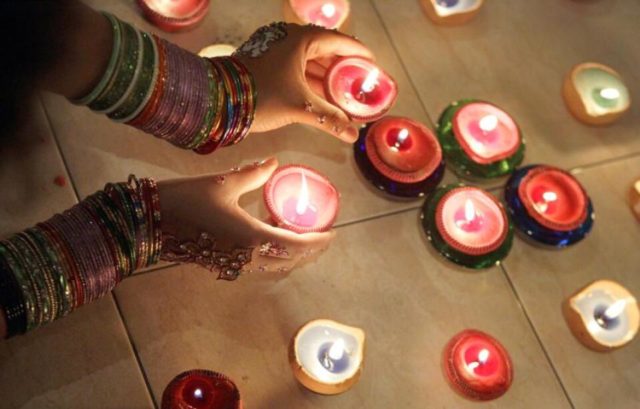Diwali is the darkest night of the darkest period, yet it is a celebration of light! Diwali is heralded as the triumph of good over evil.
by Ajay Matharu
THE TIME of Diwali is one of the most festive and beautiful times of the year. Diwali literally means a row of Lights. It is a time filled with light and love; a time when Indians all over the world rejoice. It is the darkest night of the darkest period, yet it is a celebration of light! Diwali is heralded as the triumph of good over evil.
The meaning of Diwali, its symbols and rituals, and the reasons for celebration are innumerable. Diwali celebrates Lord Rama’s glorious and long awaited return to his kingdom of Ayodhya after his fourteen years of exile in the forests. It commemorates Lord Krishna’s victory over the demon Narakaasura who had kidnapped and terrorised the gopis of Vrindavan. It is also celebrated as the day Bhagwan Vishnu married Maha Lakshmi. Diiwali is also associated with the story of the fall of Bali – a demon king who was defeated by Lord Vishnu. In general, Diwali signifies the triumph of good over evil, of righteousness over treachery, of truth over falsehood, and of light over darkness.
However, Diwali is not a festival of lights in order that we may burn candles, fireworks and sparklers. Sure, these are wonderful ways of expressing our gaiety. But, it is not the only or true meaning of ‘light’.
Diwali is a festival of the light which dispels the darkness of our ignorance; it is a festival of the light which shows us the way on our journey through life. The purpose is not to glorify the light of the candle or the firecracker. The purpose is to glorify the light of God. It is He who bestows the real light, the everlasting light upon the darkness of this mundane world. A candle burns out. A firework is a momentary visual experience. But, the candle of a still mind and the fireworks of a heartfilled with bhakti are divine and eternal; these are what we should be celebrating.
We decorate our homes with lanterns; but what is the symbolism behind that? Those lanterns signify God’s light, penetrating through the ignorance and sin of our daily lives. They signify the divine light, shining its way through this mundane world. A home bathed in light is a home in which anger, pain and ignorance are being dispelled; it is a home that is calling to God. However, too many people turn this into a domestic beauty contest, spending days and a great deal of money to purchase the newest diyas, the most beautiful candles. This is only the light of glamour. It is not the light of God.
The light of Diwali should be within us. It should symbolise the personal relationship between God and our families. Let the light penetrate inward, for only there will it have lasting benefit. Apiece of cotton soaked in ghee, lit with a pure heart, a conscious mind and a desire to be free from ignorance is far “brighter” than 100 expensive deepaks.







